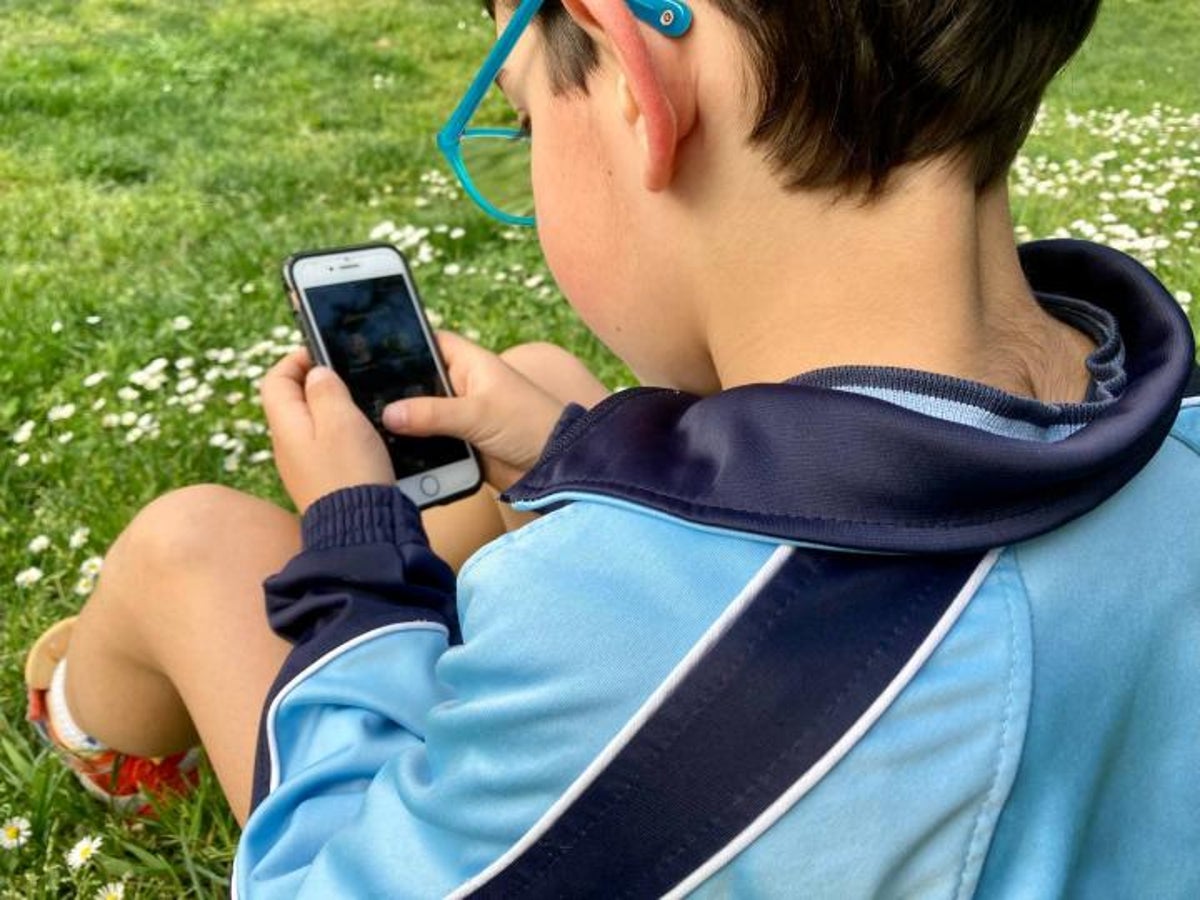Using devices to soothe toddler tantrums can have long-term effects, study warns

Frequent use of smartphones and tablets to calm upset toddlers is linked to increased emotional dysregulation in the long term, particularly in boys, a new study warns.
Parents across the globe give young children digital devices to soothe them when the kids have a meltdown.
While the preschool-to-kindergarten period is a developmental stage in children when they may be more likely to exhibit difficult behaviors, throwing tantrums, acting defiant, and making it even more tempting to use devices, researchers, including those from the University of Michigan in the US, caution that this strategy may backfire in the long-run.
The new study, published on Wednesday in the journal JAMA Pediatrics, warns that while using devices to soothe upset toddlers may work in the short term, it may reduce opportunities for the kids to practice emotional coping skills.
“Using mobile devices to settle down a young child may seem like a harmless, temporary tool to reduce stress in the household, but there may be long-term consequences if it’s a regular go-to soothing strategy,” study lead author Jenny Radesky, a developmental behavioral pediatrician at the University of Michigan in the US, said.
“Particularly in early childhood, devices may displace opportunities for development of independent and alternative methods to self-regulate,” Dr Radesky said.
In the study, scientists assessed data from 422 parents and 422 children of ages 3-5, who participated between August 2018 and January 2020, before the Covid-19 pandemic started.
They analysed parent and caregiver responses to how often they used devices as a calming tool, and assessed their associations to symptoms of emotional dysregulation over a six-month period.
Researchers found that the association between device-calming and emotional consequences was particularly high among young boys and children who may already experience hyperactivity, impulsiveness and a strong temperament that makes them more likely to react intensely to feelings like anger, frustration and sadness.
“Our findings suggest that using devices as a way to appease agitated children may especially be problematic to those who already struggle with emotional coping skills,” Dr Radesky said.
“The habit of using devices to manage difficult behavior strengthens over time as children’s media demands strengthen as well. The more often devices are used, the less practice children – and their parents – get to use other coping strategies,” she explained.
While the occasional use of digital devices to occupy children is realistic, scientists say it is important for it to not become a regular soothing tool.
Instead, Dr Radesky suggests that parents recognise the unique profiles of sensory input that calms their children down.
Such profiles may include swinging, hugging, or jumping on a trampoline, squishing putty in their hands, or listening to music.
Since young kids may find it difficult to think about abstract concepts like emotions, researchers suggest parents use “colour zones” to help the children paint a mental picture of how they are feeling.
Citing an example, Dr Radesky says blue could code for bored, green for calm, yellow for anxious, and red for explosive.
Such codes, she says, can be used to convey to toddlers that their emotional states may be changing with prompts like “you are getting wiggly and in the yellow zone – what can you do to get back to green?”
Parents may also set timers on devices to prevent tantrums, giving the children clear expectations of when and where devices can be used, scientists say.
“All of these solutions help children understand themselves better, and feel more competent at managing their feelings. It takes repetition by a caregiver who also needs to try to stay calm and not overreact to the child’s emotions, but it helps build emotion regulation skills that last a lifetime,” Dr Radesky said.
“In contrast, using a distractor like a mobile device doesn’t teach a skill – it just distracts the child away from how they are feeling. Kids who don’t build these skills in early childhood are more likely to struggle when stressed out in school or with peers as they get older,” she added.
For all the latest Science News Click Here
For the latest news and updates, follow us on Google News.

